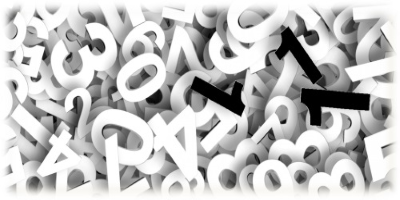The Hebrew word תורה (torah, Strong's #8451) is usually translated into the English word "Law". Because of this translation there is a great misunderstanding of what "Torah" truly is. "TORAH IS NOT LAW". When we use the word "law" we assume a certain meaning and concept of the word that is not present in the Hebrew Scriptures.
Let us start by looking at the Etymology of the Hebrew word Torah so that we may better understand its true definition. The word Torah comes from the Hebrew root word ירה (Y.R.H, Strong's #3384), a verb which means "to flow or throw something".
This can be a flowing of an arrow from an archer's bow, or the flowing of a finger to point out a direction. Nouns are derived from the verb by making one or two changes to the verb root. For instance, when the י (the letter yud) is replaced by a ו (the letter vav) and a מ (the letter mem) is added to the front of the word, the noun מורה (moreh, Strong's #4175) is formed and means "one who does the flowing".
This can be an archer who flows an arrow, or a teacher who flows his finger to point out way the student is to go in the walk of life. Another noun is formed the same way except that a ת (the letter tav) is placed at the front of the word instead of a מ (the letter mem) and we have the word Torah. Torah is "what is flowed by the Moreh". This can be the arrow from the archer or the teachings and instructions from the teacher.
A hebraic definition of Torah is "a set of Instructions, from a father to his children, violation of these instructions are disciplined in order to foster obedience and train his children". Notice how the word Torah is translated in the New International Version translation in the following passages.
"Listen, my son, to your father's instruction and do not forsake your mother's teaching [Torah]." (Proverbs 1:8)
"My son, do not forget my teaching [Torah], but keep my commands in your heart". (Proverbs 3:1)
The purpose of a parents Torah is to teach and bring the children to maturity. If the Torah is violated out of disrespect or defiant disobedience, the child is punished. If the child desires to follow the instructions out of a loving obedience but falls short of the expectations, the child is commended for the effort and counseled on how to perform the instructions better the next time.
Unlike Torah, law is a set of rules from a government and binding on a community. Violation of the rules require punishment. With this type of law, there is no room for teaching, either the law was broken with the penalty of punishment or it was not broken. God, as our heavenly Father, gives his children his Torah in the same manner as parents give their Torah to their children, not in the manner as a government does to its citizens.
"Blessed is the man you discipline, O LORD, the man you teach from your Torah" (Psalms 94:12)

Like what you’re discovering? Continue the journey from Bible reader to translator.
|






